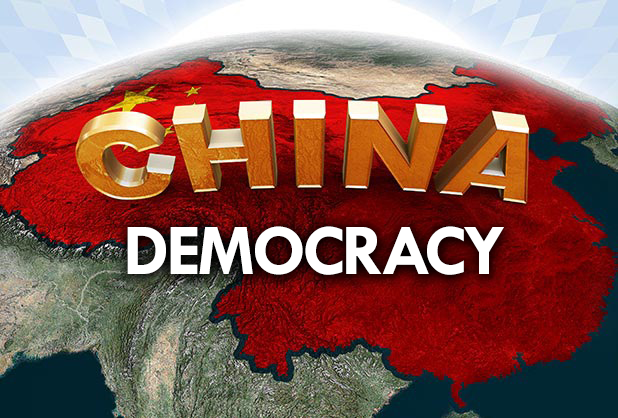China & democracy
The article is extracted from Eric Lee’s TED speech seen from below
Story 1 : All human societies develop in linear progression, beginning with primitive society, then slave society, feudalism, capitalism, socialism, and finally, guess where we end up? Communism! Sooner or later, all of humanity, regardless of culture, language, nationality, will arrive at this final stage of political and social development. The entire world’s peoples will be unified in this paradise on Earth and live happily ever after. But before we get there, we’re engaged in a struggle between good and evil, the good of socialism against the evil of capitalism, and the good shall triumph.
Comment : That was the meta-narrative distilled from the theories of Karl Marx. And the Chinese bought it. We were taught that grand story day in and day out. It became part of us, and we believed in it. The story was a bestseller. About one third of the entire world’s population lived under that meta-narrative.
Story 2 : It also claims that all human societies develop in a linear progression towards a singular end. This one went as follows: All societies, regardless of culture, be it Christian, Muslim, Confucian, must progress from traditional societies in which groups are the basic units to modern societies in which atomized individuals are the sovereign units, and all these individuals are, by definition, rational, and they all want one thing: the vote. Because they are all rational, once given the vote, they produce good government and live happily ever after. Paradise on Earth, again. Sooner or later, electoral democracy will be the only political system for all countries and all peoples, with a free market to make them all rich. But before we get there, we’re engaged in a struggle between good and evil.
Comment : The good belongs to those who are democracies and are charged with a mission of spreading it around the globe, sometimes by force, against the evil of those who do not hold elections.
Based on the two stories…
Multiple parties fight for political power and everyone voting on them is the only path to salvation to the long-suffering developing world. Those who buy the prospectus are destined for success. Those who do not are doomed to fail.
But this time, the Chinese didn’t buy it.
Conclusions
“We live in the dusk of an era. Meta-narratives that make universal claims failed us in the 20th century and are failing us in the 21st. Meta-narrative is the cancer that is killing democracy from the inside. Now, I want to clarify something. I’m not here to make an indictment of democracy. On the contrary, I think democracy contributed to the rise of the West and the creation of the modern world. It is the universal claim that many Western elites are making about their political system, the hubris, that is at the heart of the West’s current ills. If they would spend just a little less time on trying to force their way onto others, and a little bit more on political reform at home, they might give their democracy a better chance. China’s political model will never supplant electoral democracy, because unlike the latter, it doesn’t pretend to be universal. It cannot be exported. But that is the point precisely. The significance of China’s example is not that it provides an alternative, but the demonstration that alternatives exist. Let us draw to a close this era of meta-narratives. Communism and democracy may both be laudable ideals, but the era of their dogmatic universalism is over. Let us stop telling people and our children there’s only one way to govern ourselves and a singular future towards which all societies must evolve. It is wrong. It is irresponsible. And worst of all, it is boring. Let universality make way for plurality. Perhaps a more interesting age is upon us. Are we brave enough to welcome it?”


